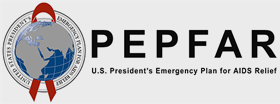In Djélika’s country, the Malian Ministry of Health (MOH) has committed to keeping its moms and babies safe by recently earmarking funds—for the first time—to procure and distribute three lifesaving maternal, newborn and child health (MNCH) commodities: oxytocin, magnesium sulfate, and chlorhexidine. Oxytocin and magnesium sulfate help with safer childbirth and chlorhexidine supports better newborn umbilical cord care. The UN Commission on Life-Saving Commodities for Women and Children identified these three commodities (in addition to 10 others) as priority commodities for countries to procure because they are “best buys,” or considered to be the most efficacious and cost-effective for managing the health issues women and children face.
Through close work with the USAID GHSC-PSM project, Mali’s Pharmacy and Medicine Directorate (DPM) and National Pharmacy (PPM) enhanced their data systems, built staff capacity, and underwent workshops to accurately quantify and forecast the national need for these commodities. As a result, the USAID GHSC-PSM project, DPM, and PPM could advocate—using reliable data to back their case—for the needed financing to ensure these commodities are available to mothers and their children across the country. The MOH has since agreed to finance these commodities, eliminating the need for USAID assistance to procure and distribute oxytocin, magnesium sulfate, and chlorhexidine. The funds previously donated by USAID for these commodities are now being invested elsewhere, to further strengthen Mali’s public health supply chain.
Enhancing Mali’s public health supply chain is critical to ensuring mothers like Djélika have access to chlorhexidine and other commodities for safe childbirth and newborn care. To date, the USAID GHSC-PSM project’s support to the government of Mali has increased availability of oxytocin, magnesium sulfate, and chlorhexidine at service delivery points such as the hospital where Djélika sought care.




